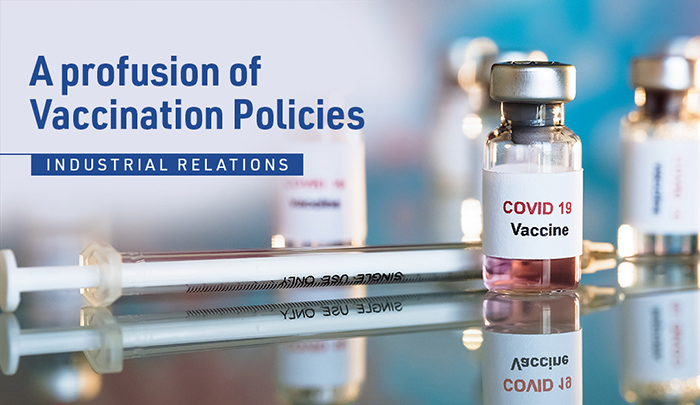A Profusion of Vaccination Policies

With the rescinding of the vaccination mandate in South Australian schools on 31 March, it was no longer unlawful to work in a school whilst unvaccinated.
The health message however contained mixed signals, in that,
- on one hand mandates had outlived their usefulness but
- on the other hand vaccinations were recommended as our prime method of controlling COVID 19’s spread and effects.
It reverted to individual employers to determine IF they wanted a vaccination policy and, after workplace consultation, WHAT that policy (if any) would be. It is open to employers to devise such policies but a recent Commission case involving BHP determined that appropriate consultation was needed. Most schools are following the advice that consultation should involve the IEU.
Government schools quickly consulted staff and confirmed the interim policy that people whose vaccination was not up to date (ie. boosted) could return but with extra precautions – masks and a Rapid Antigen Test (RAT) a day.
Ideally, all SA schools would adopt a consistent approach across the board and there would be a role for the unvaccinated to retain employment. To terminate or deny employment would be a disproportionate consequence for a perfectly lawful stance.
The Catholic sector went into quick consultation mode and adopted a more strident position in that unvaccinated people could not work in Catholic schools, but 2 jabs would count as being “vaccinated” (even though this has been proven to be less effective than being “up to date”).
The Independent and Lutheran sectors have been adopting a more sedate development process and by the end of this term many are finalising individual policies (or none). The lack of urgency is perhaps reflective of the perceived importance of the issue. Cynics may even think it has more to do with market-driven optics than moderating serious health risks. The IEU has consistently taken a principles-based approach to COVID response measures. We do not have a dogmatic position on vaccination mandates. The IEU:
- has no medical expertise to adjudicate between conflicting disease and vaccination arguments so will not enter into debates;
- accepts the mainstream science and the resulting regulations; and
- recognises the role of the “social contract” in protecting society and individuals.
When the mandate was rescinded the questions became:
- Would a continued mandate make schools safer places?
- What level of restriction is tolerable and practical?
- When does the pain outweigh the gain?
- How are the rights of the vaccinated and the unvaccinated to be balanced?
- Is there broad consensus at the worksite on the proposed policy?
When the community has reached consensus on the need (or not) for a policy and the level to which they are prepared to go, then the drafting takes place. Ideally there would be:
- No requirement to provide documents for employer retention. Sighting should be sufficient;
- Privacy and confidentiality protection;
- An early review date;
- Consideration of special circumstances;
- Simple exemption criteria;
- Exemptions for short term and irregular visitors and parents;
- Employer supplied RATs and masks if required;
- Reasonable accommodation of unvaccinated staff; and
- Concise and unambiguous wording.
There has been a pleasingly positive response from many schools to our approach and involvement, however, there has been some reluctance to work with the Union from some others. We will need to follow up on schools which have not yet consulted with the IEU as we cannot assume that these schools simply have not developed any policy.
The Department for Education probably hit the best middle ground by requiring up to date vaccinations but allowing others back with RATs and masks.
Unfortunately, we will end up with a plethora of policy variants from no restrictions to full mandates and a possible change of employer for some.

